New
Click-to-Instagram Direct Ads

In the dynamic world of Direct-to-Consumer (D2C) marketing, staying ahead means leveraging technology to create more personalized, efficient, and scalable customer journeys. QuickReply.ai introduces two groundbreaking functionalities, Flow Builder & Event Processor, designed to elevate your marketing strategies through seamless integrations and automation. By harnessing the power of these tools, D2C brands can set up custom flows and drip campaigns on WhatsApp, pulling data from any external third-party tool or database. This capability opens up a world of possibilities for personalized engagement and streamlined processes.
Those who have used Klaviyo know what a powerful tool it is. You can do everything from emails to SMS to customer feedback using a single dashboard. However, it still lacks a native channel that makes it difficult for brands to reach out to customers in emerging economies—WhatsApp.
The logic is simple: One out of every five dollars spent is cross-border, highlighting the immense potential in emerging markets. According to Zion research, cross-border commerce will hit $4.8 trillion in 2027.
Traditional outreach methods like email and SMS often fall short in emerging economies.
Perceptions of scam and intrusiveness mar SMS, while emails, predominantly utilized in tier 1 cities, lack the immediacy and interactivity that today's consumers demand.
The traditional one-directional communication of email and SMS is slowly losing customer appeal. Additionally, brands' indiscriminate spamming has led to widespread channel fatigue, causing a sharp decline in email open rates and reducing SMS to merely a vehicle for one-time passwords (OTPs).
With its universal appeal and conversational interface, WhatsApp bridges this gap, offering a more engaging and secure platform for customer interaction.
By integrating Klaviyo popups with QuickReply, businesses can capture visitor information and initiate personalized WhatsApp conversations.
The breadth of data that can be shared from Klaviyo to QuickReply.ai includes, but is not limited to:
Upon receiving data from Klaviyo, QuickReply.ai enables businesses to run comprehensive buyer journeys on WhatsApp independently. The platform offers versatility, whether mimicking email and SMS campaigns or devising unique WhatsApp-centric strategies.
For instance, a three-step drip campaign for cart abandoners, previously executed through Klaviyo via email and SMS, can now be replicated or creatively adapted on WhatsApp.
Imagine the scenario with Shireen again. With the phone number and interest data received, QuickReply.ai can kickstart a product abandonment sequence on WhatsApp, gently nudging Shireen toward completing the purchase. This approach recaptures lost sales opportunities in a personalized, engaging manner that resonates with customers.
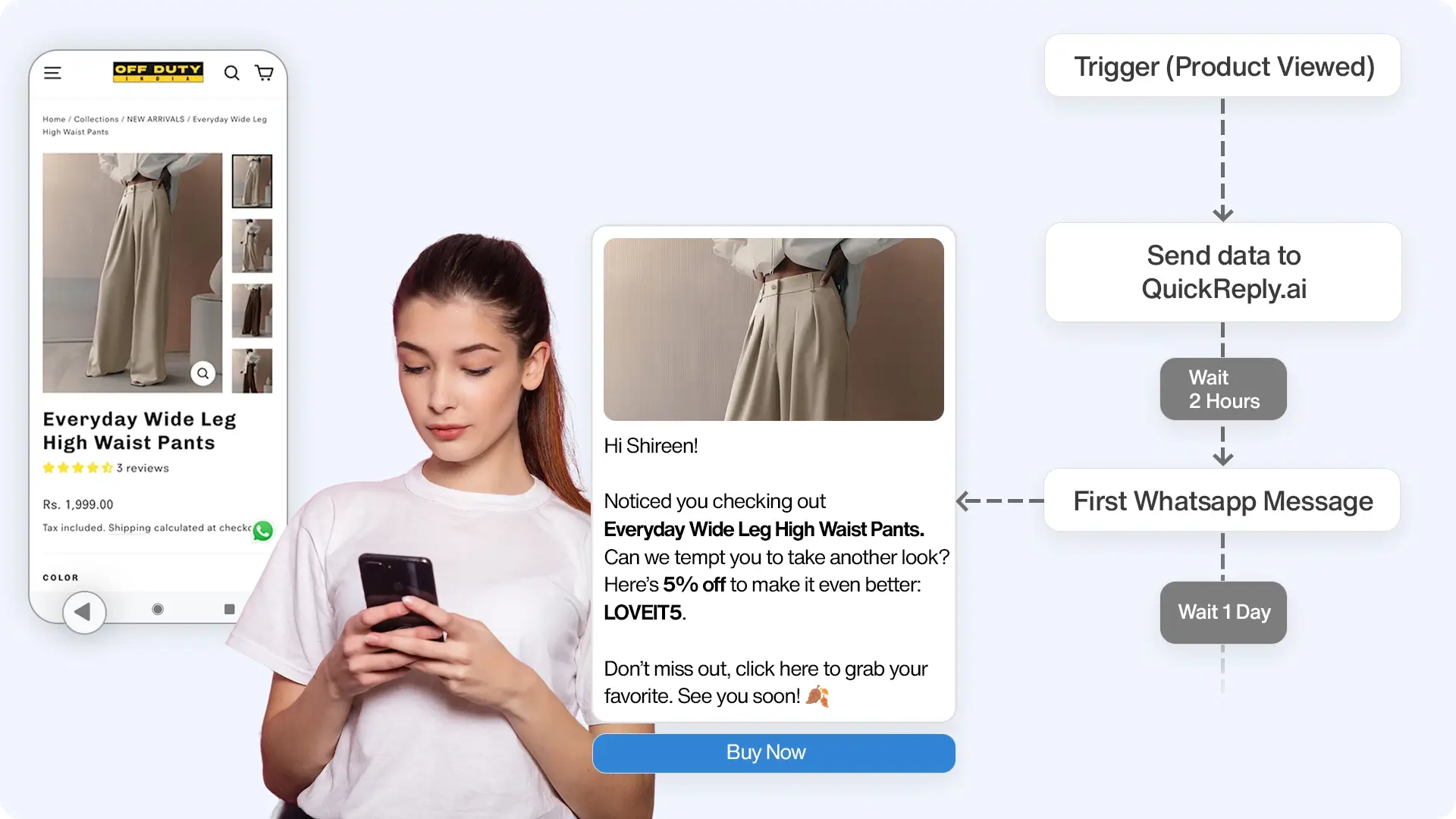
To learn more about this integration, check out our blog on - WhatsApp Marketing Using Klaviyo? QuickReply.ai Makes It Possible
Challenge: Recovering abandoned carts with tailored messaging.
Solution: Custom flows detect abandoned carts and send personalized reminders via WhatsApp. A multi-step approach starts with a gentle reminder, followed by an offer, and ends with a feedback request if the cart remains abandoned.
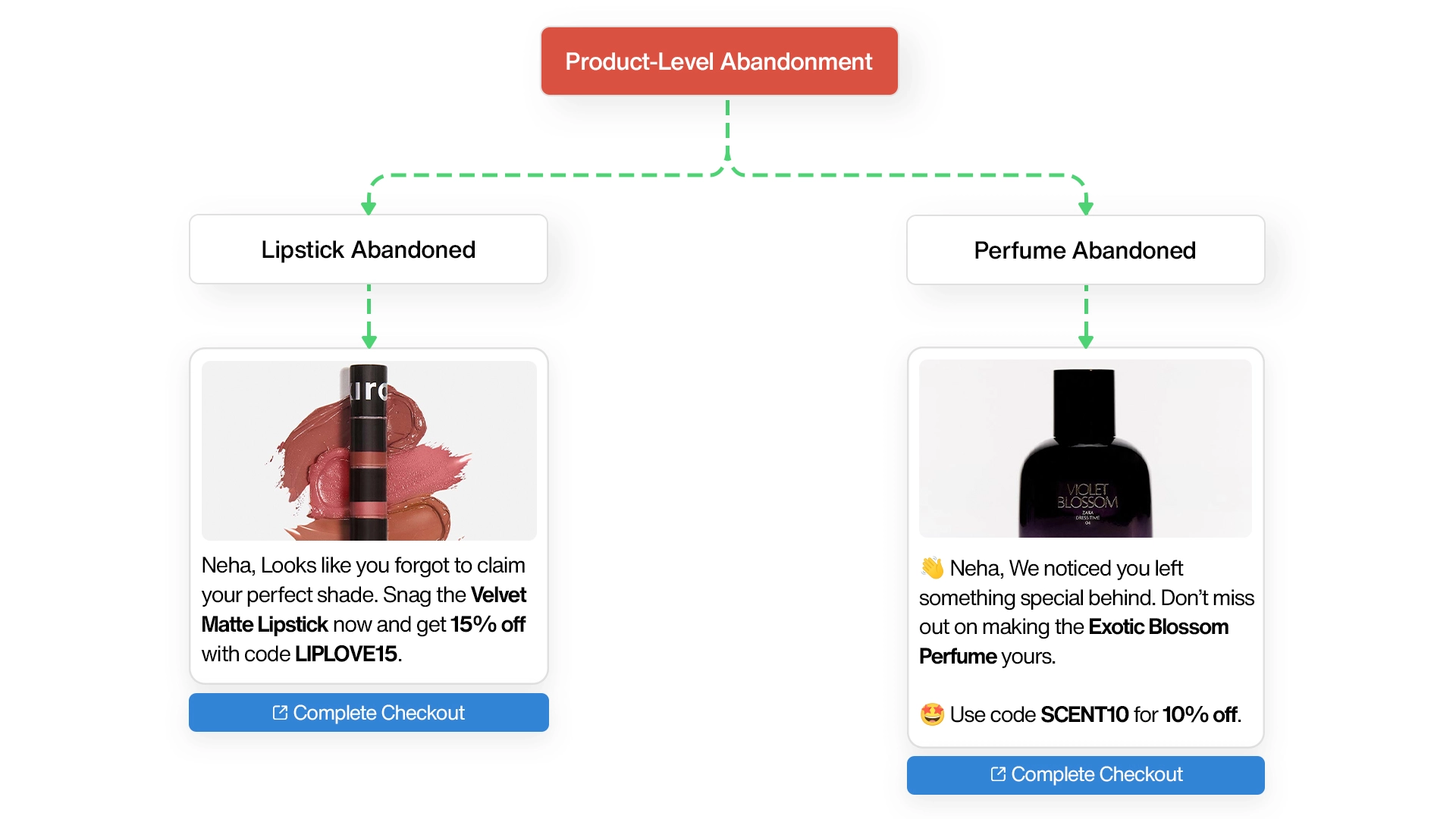
If you want to learn more on how to use product-level multi-step abandoned cart recovery drip campaigns - Check out the BTS of how Renee Cosmetics recovers 64% of their carts from WhatsApp.
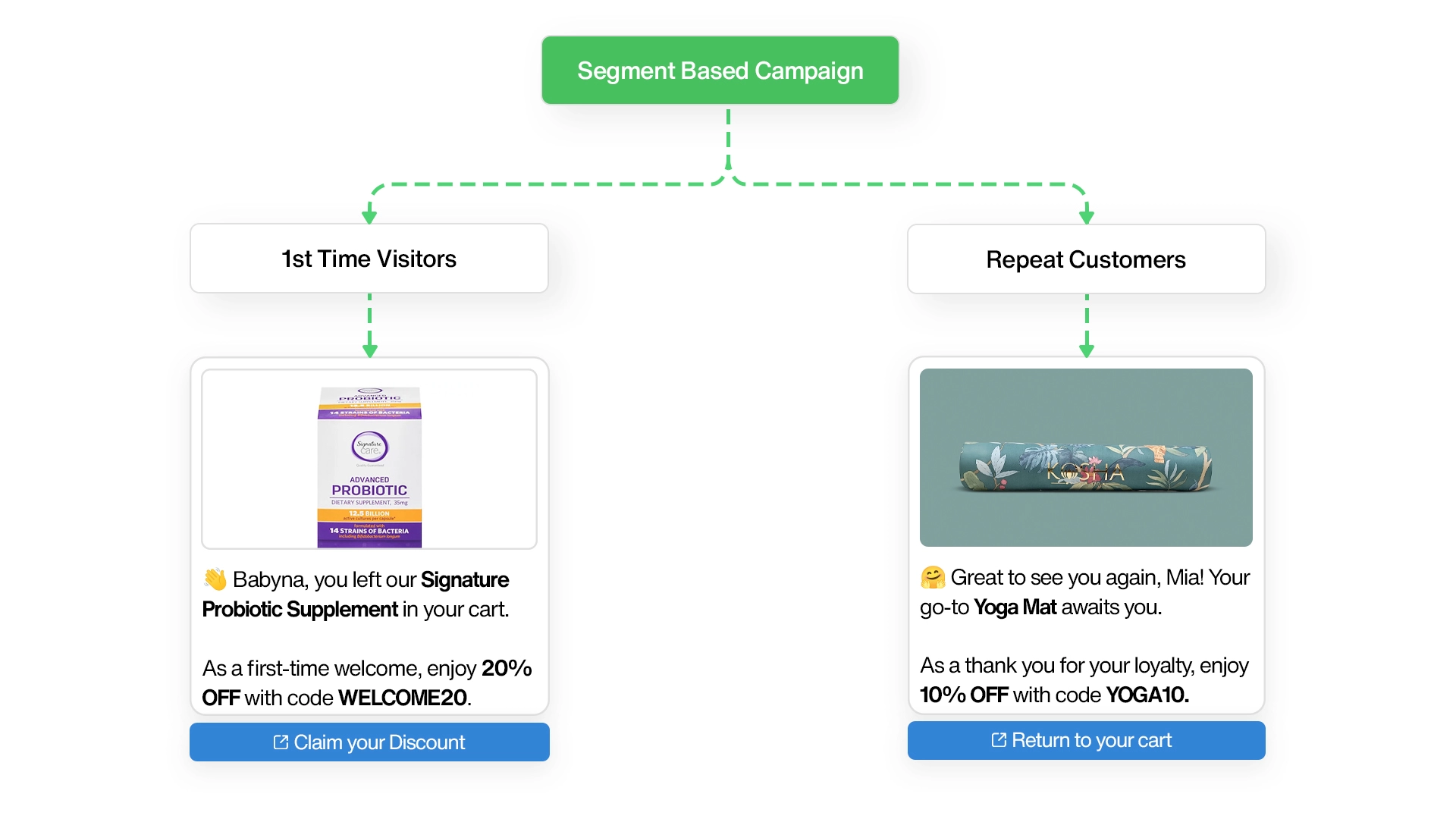
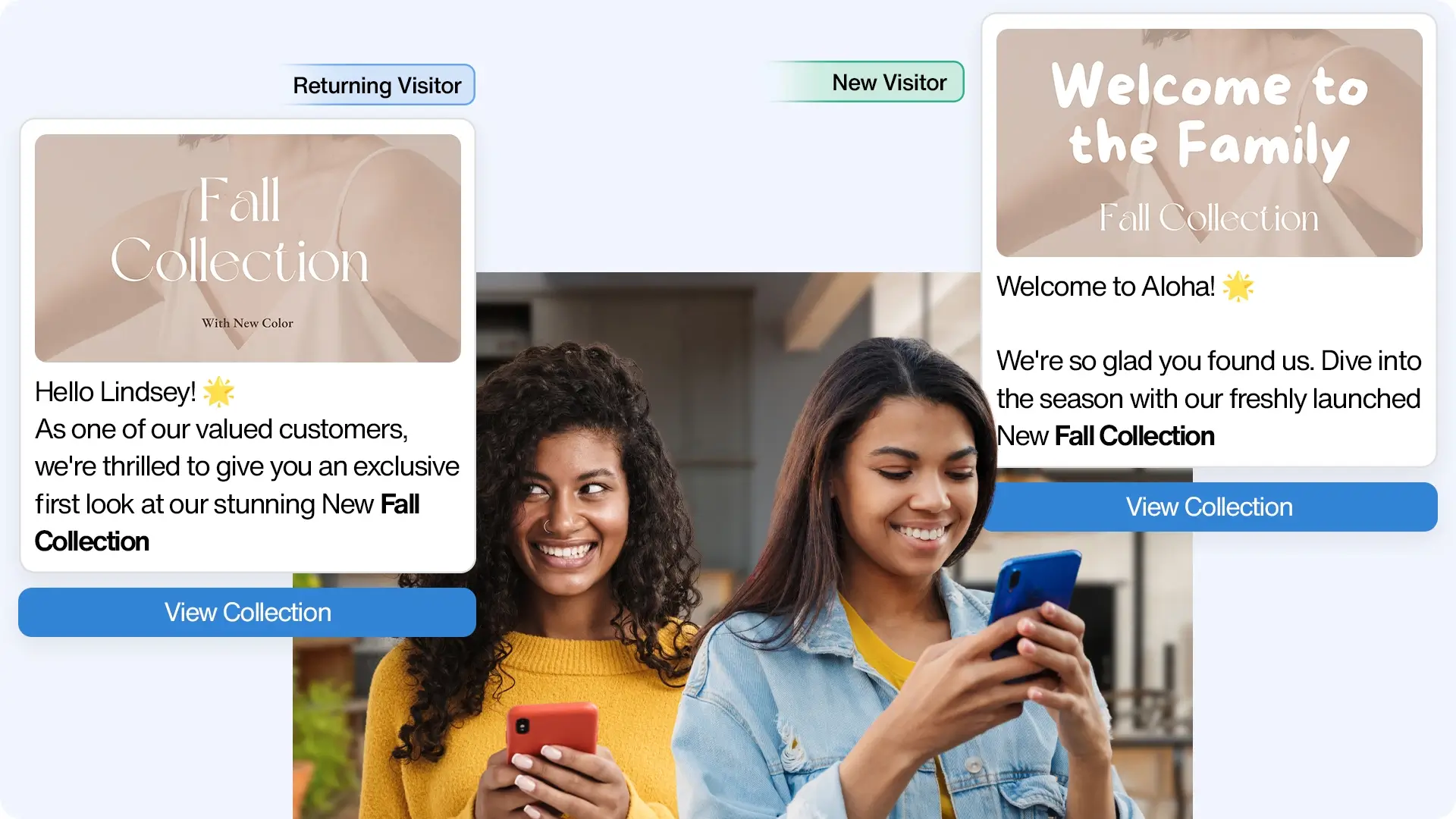
Challenge: Creating personal connections with customers.
Solution: Automate the sending of birthday, anniversary, or other recurring event reminders with special offers or messages, fostering a sense of loyalty and personal care.
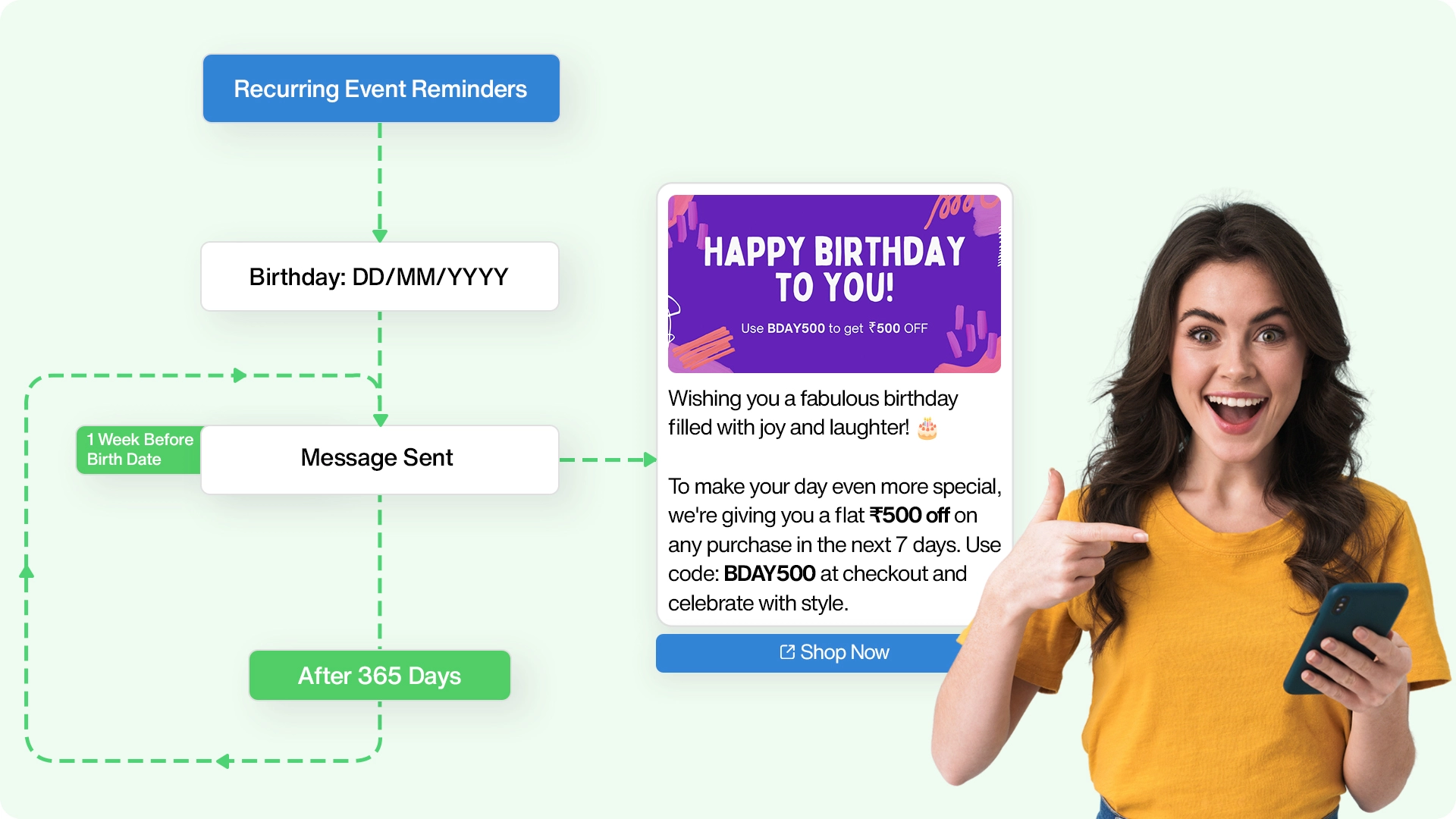
Challenge: Encouraging customers to prepay for cash on delivery orders.
Solution: A drip campaign that educates customers on the benefits of prepaid orders, such as faster shipping or additional discounts, nudging them towards changing their payment method.
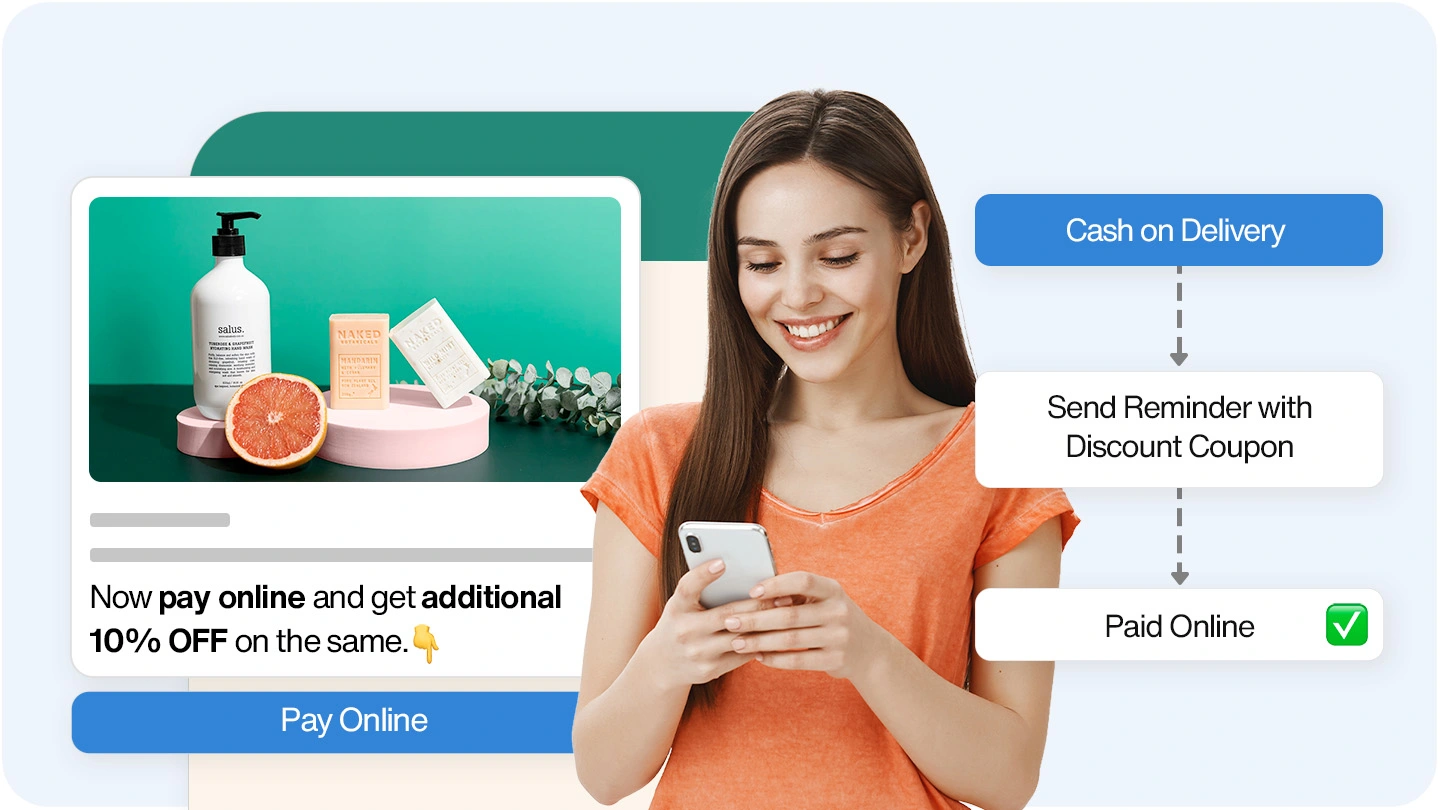
Challenge: Managing non-delivery reports (NDR) and reducing return to origin (RTO) instances.
Solution: Automated WhatsApp messages ask customers to confirm their availability or update their delivery details upon receiving an NDR, reducing RTO and improving delivery success rates.
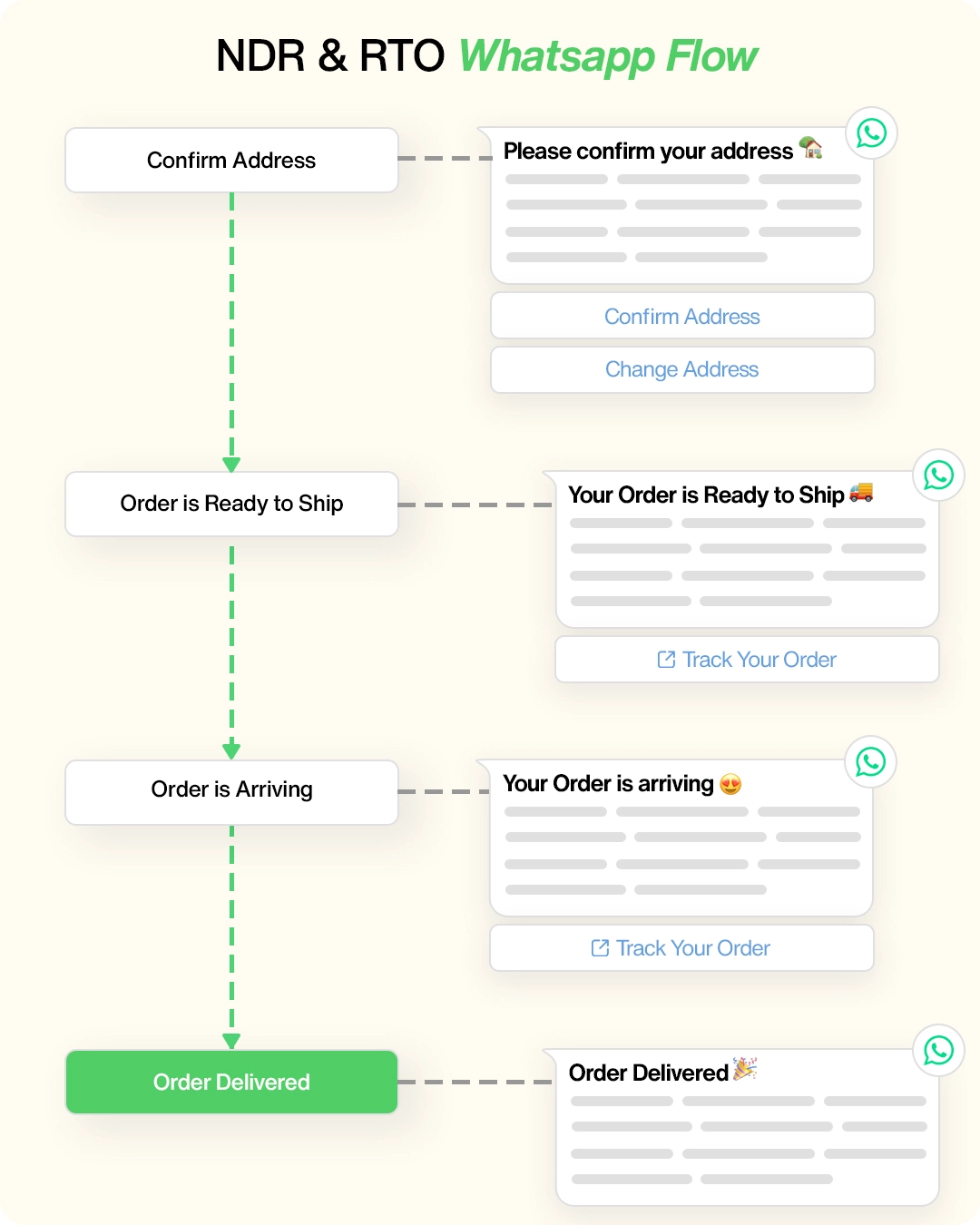
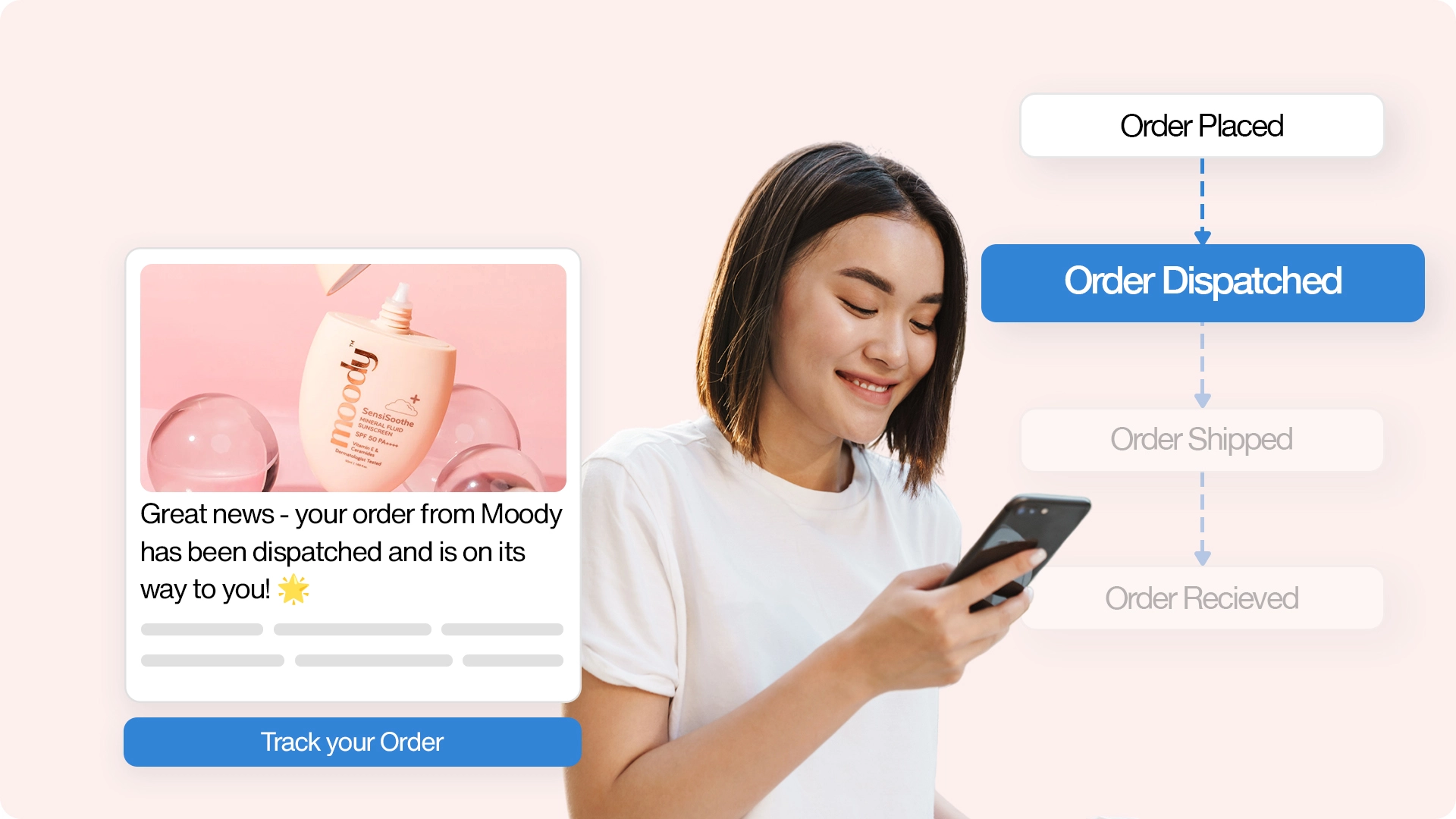
Challenge: Keeping customers updated on their shipment status.
Solution: Integration with Shiprocket to send automated updates via WhatsApp at each stage of the delivery process, enhancing transparency and customer satisfaction.
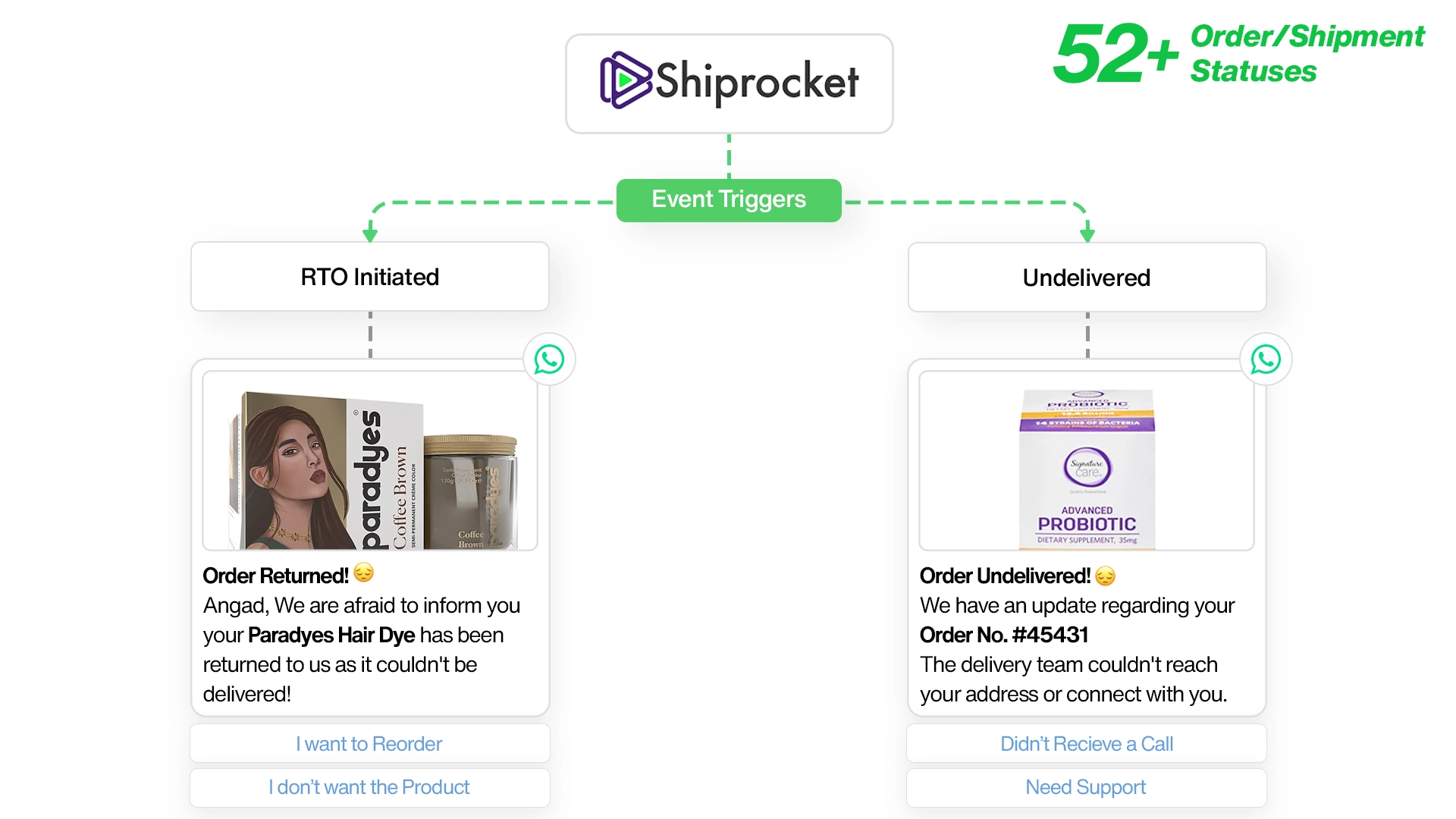
Challenge: Ensuring sales teams are promptly informed about lead status changes.
Solution: Real-time WhatsApp notifications to sales teams when a lead's status changes in the CRM, enabling immediate action and follow-up.
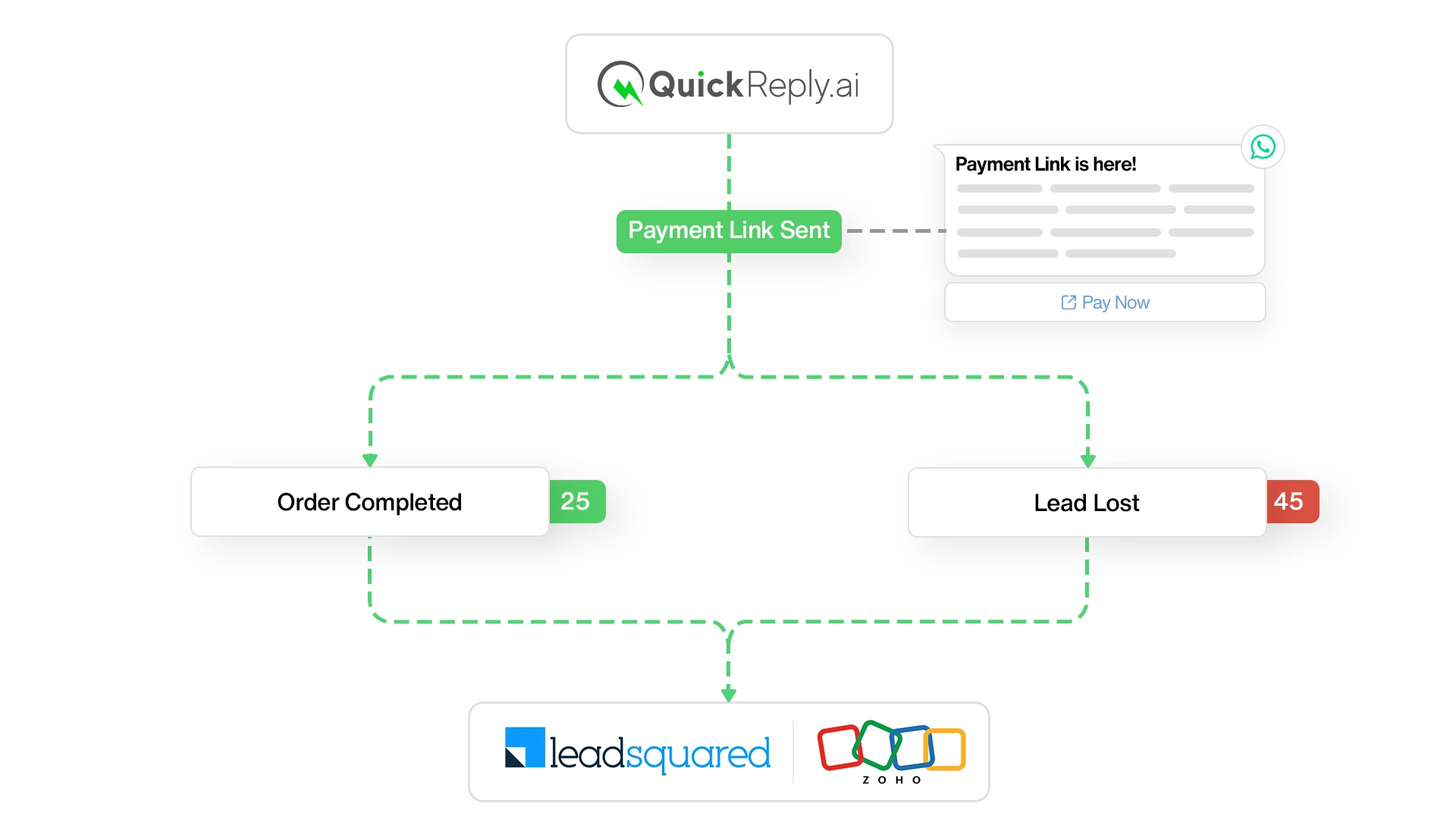
Challenge: Optimizing messaging for cross-sell and up-sell campaigns.
Solution: Utilize QuickReply Automation to run A/B tests on different messaging strategies for cross-selling and up-selling, identifying the most effective tactics to encourage repeat purchases.
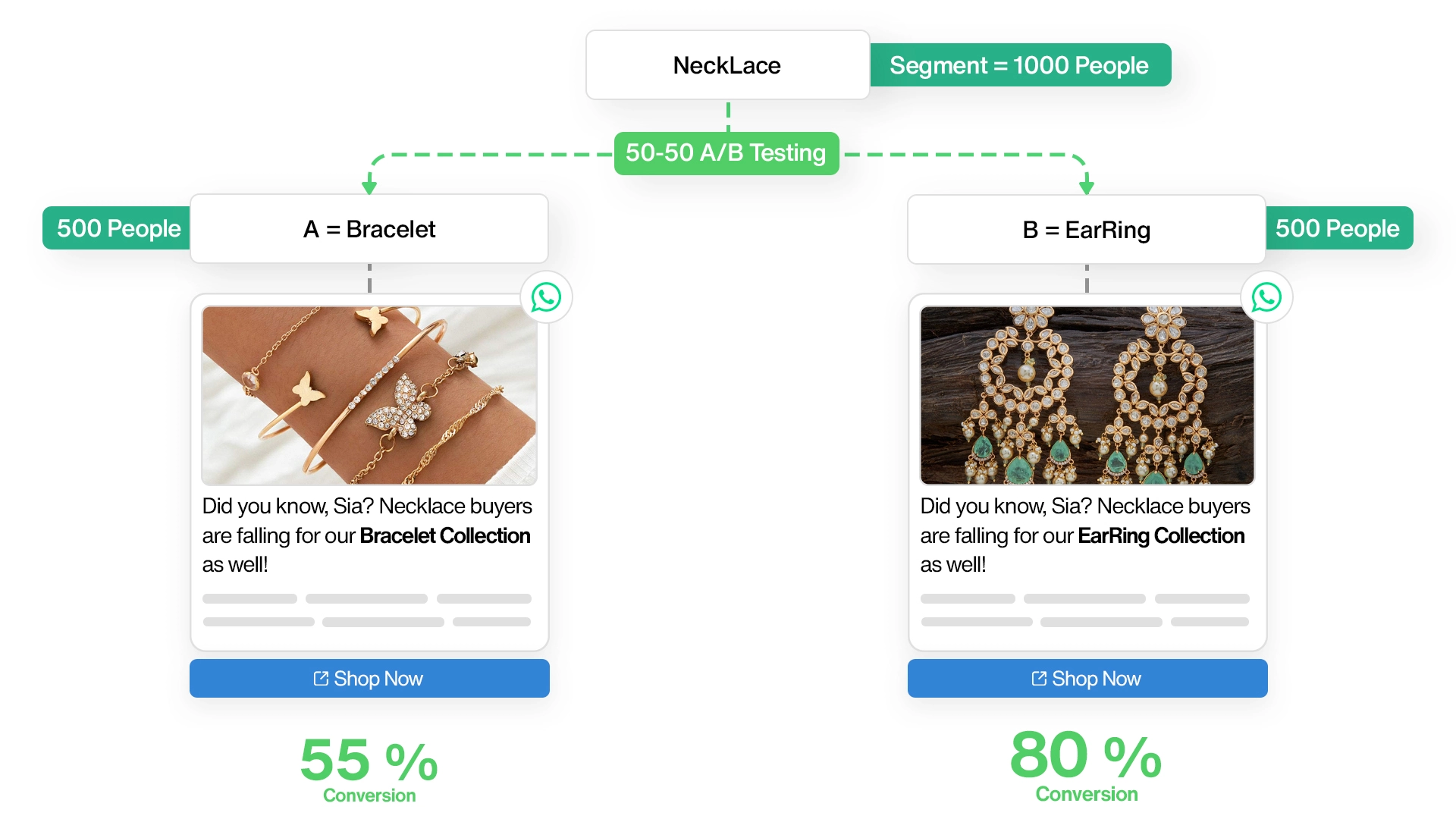
Challenge: Re-engaging customers who show interest in products but do not make a purchase.
Solution: Automated messages that showcase items from the WhatsApp catalog related to the customer's interests, prompting them to revisit their decision.
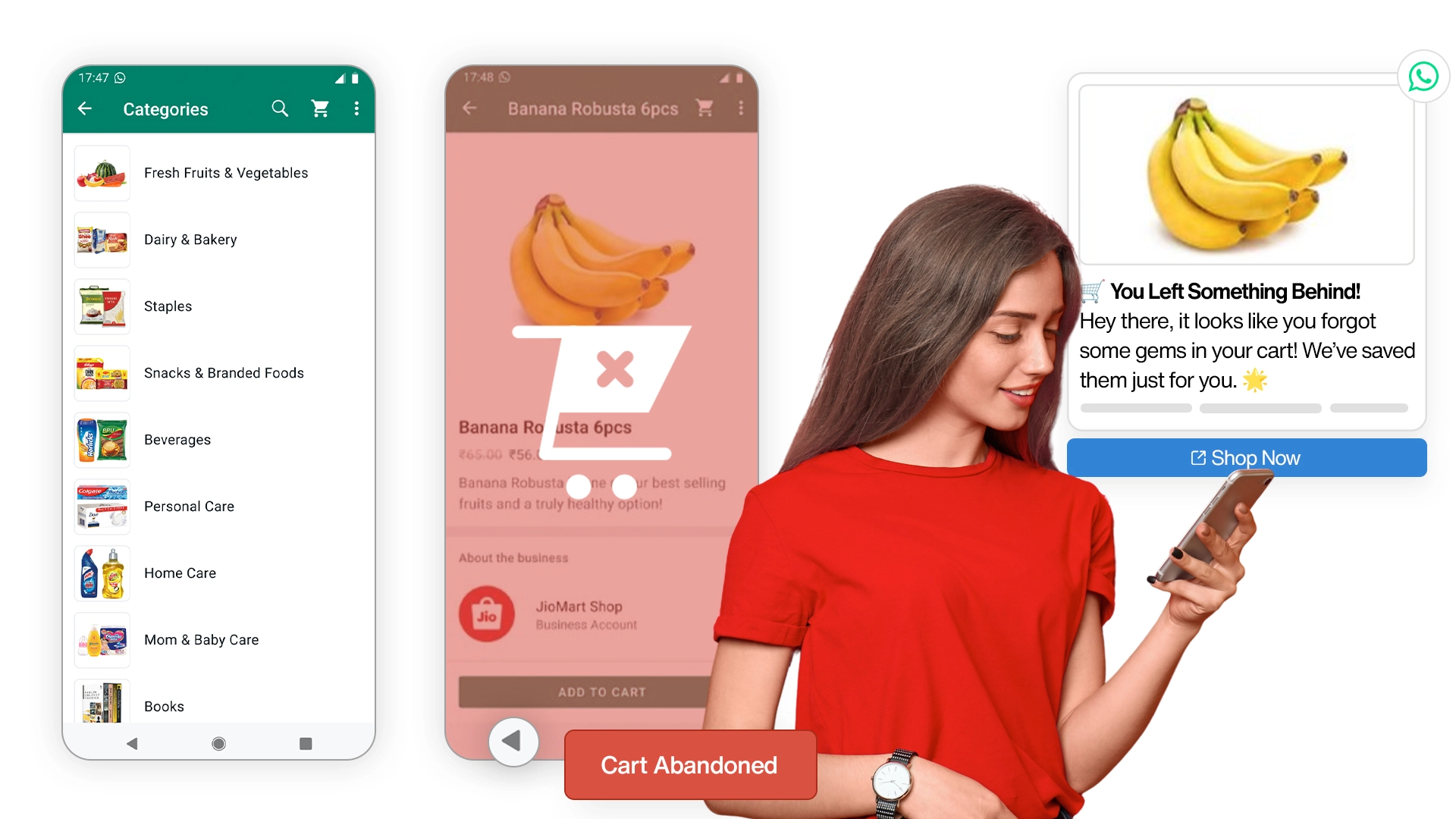
Challenge: A significant hurdle for E-commerce businesses is the high rate of website visitors who show interest in products by viewing them yet leave without taking any action, such as adding items to their cart. This represents a missed opportunity for brands to engage with potential buyers at a crucial moment in their purchasing journey.
Solution: Recognizing this gap, QuickReply.ai built a new feature: Product Browsing and Add-to-Cart Abandonment Flows via WhatsApp. This feature empowers marketing teams to seamlessly retarget visitors on WhatsApp, even if they haven't added a product to their carts.
Intelligent Event Trigger Mechanism
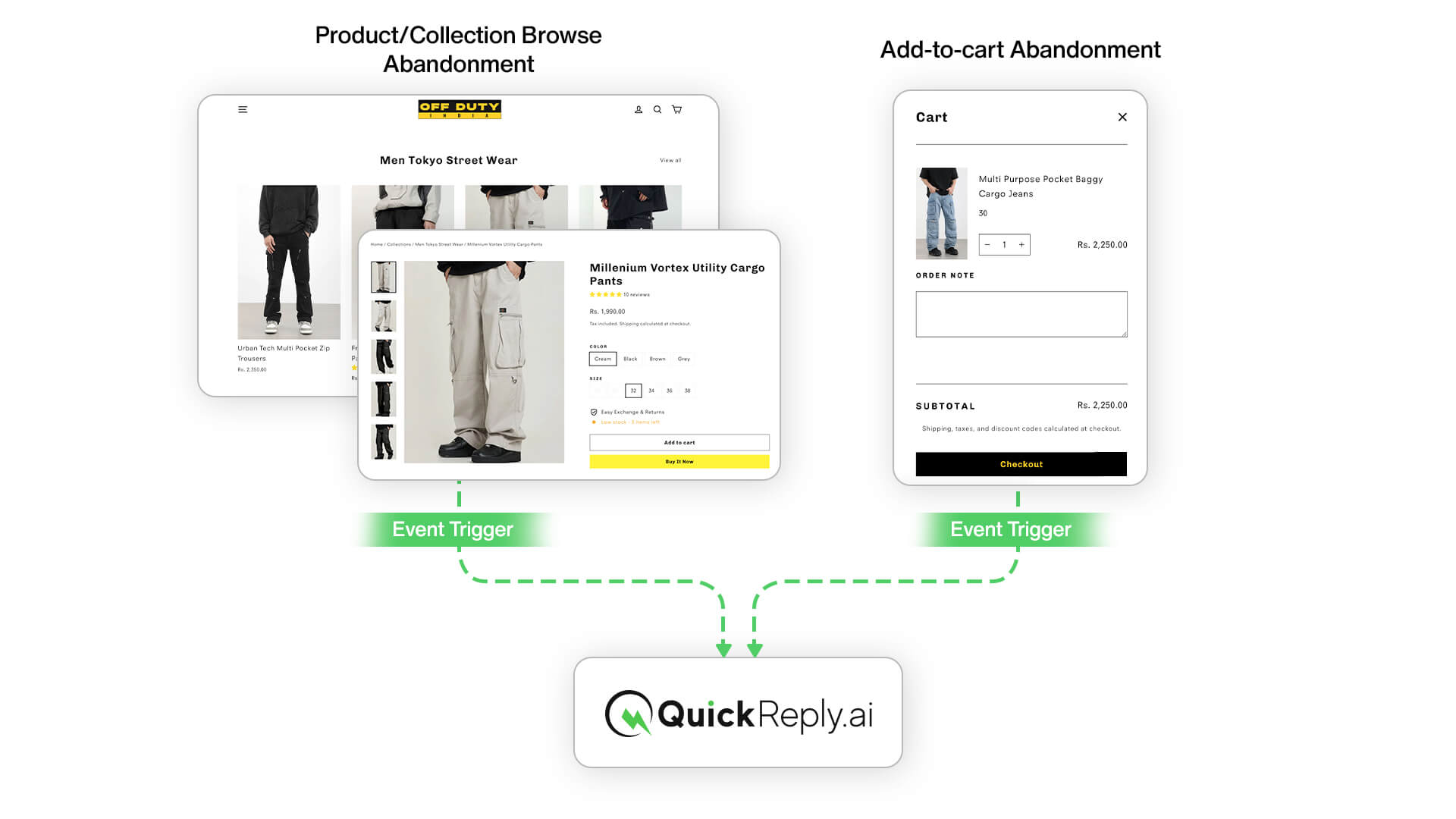
By engaging customers interested in specific products, brands can now provide personalized offers, effectively nudging them towards completing their purchase.
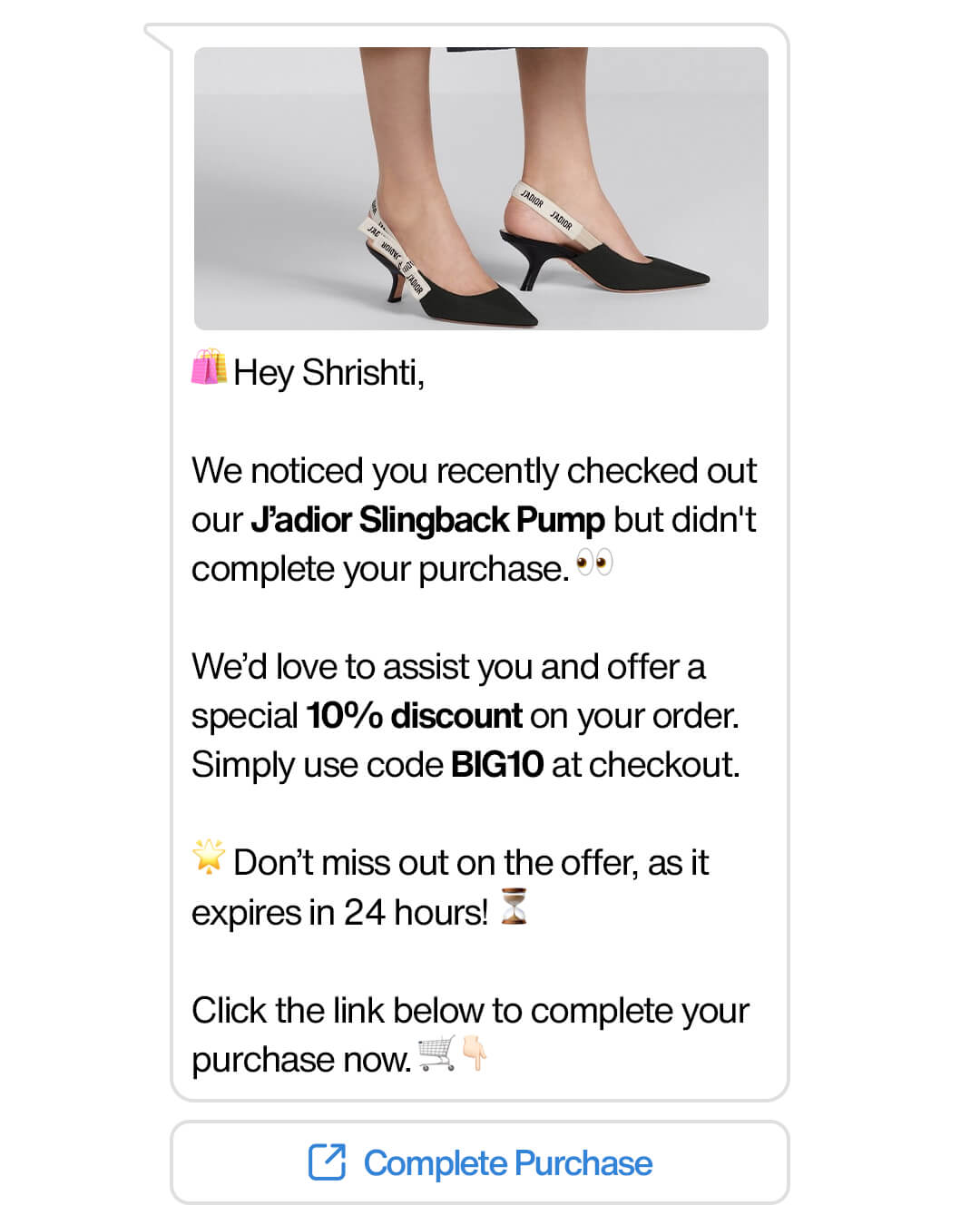
To learn more about this feature, check out our blog on - Introducing Product Browsing & Add-to-Cart Abandonment Flows via WhatsApp
Challenge: Convincing customers to proceed with draft orders.
Solution: Send reminders or incentives via WhatsApp to encourage customers to complete their draft orders, highlighting the benefits or offering assistance.
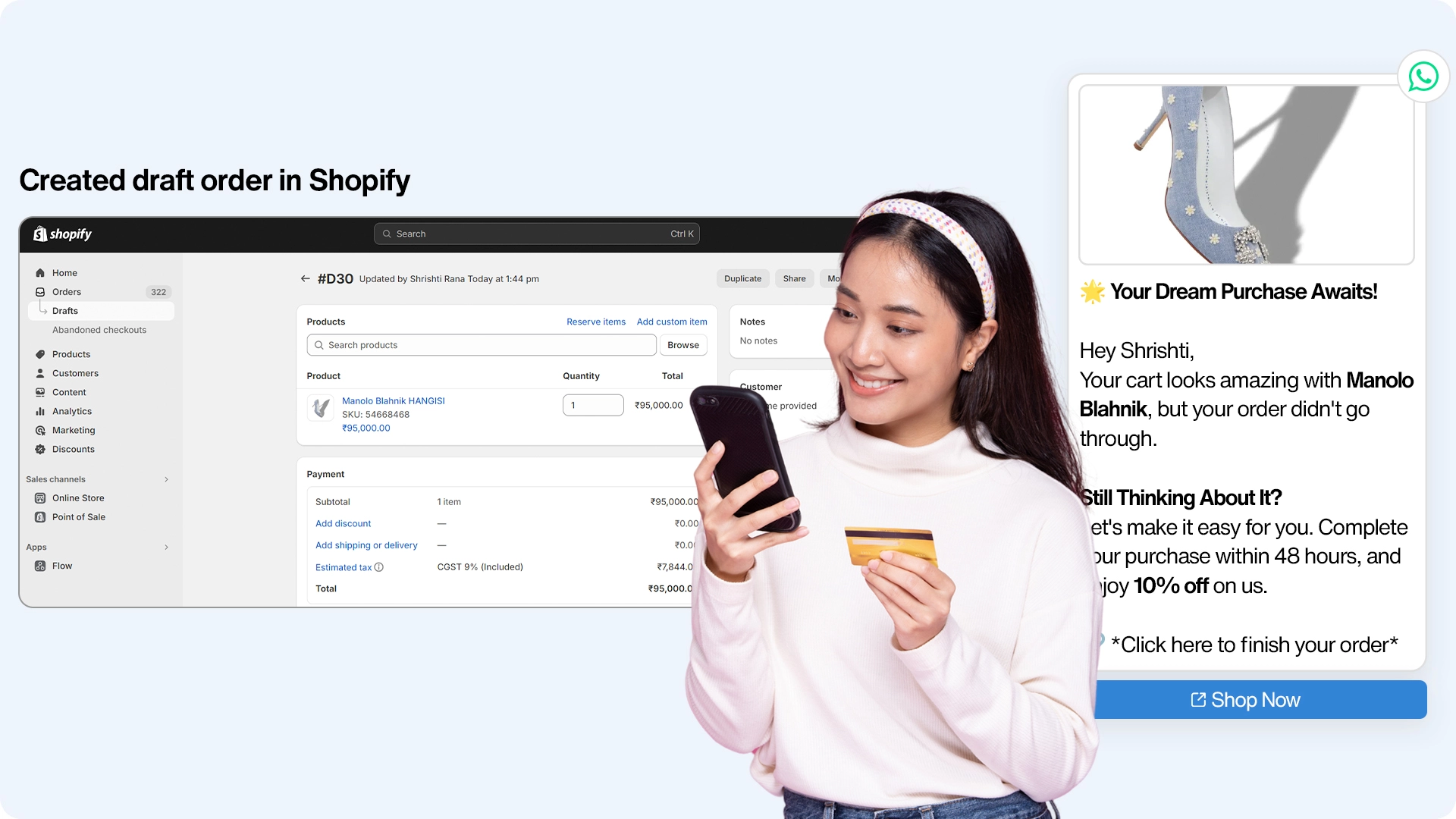
Challenge: Recovering potential leads or sales lost during interactions with a WhatsApp chatbot.
Solution: Follow-up messages to users who disengage from chatbot conversations, offering human assistance or addressing their last stated needs or concerns.
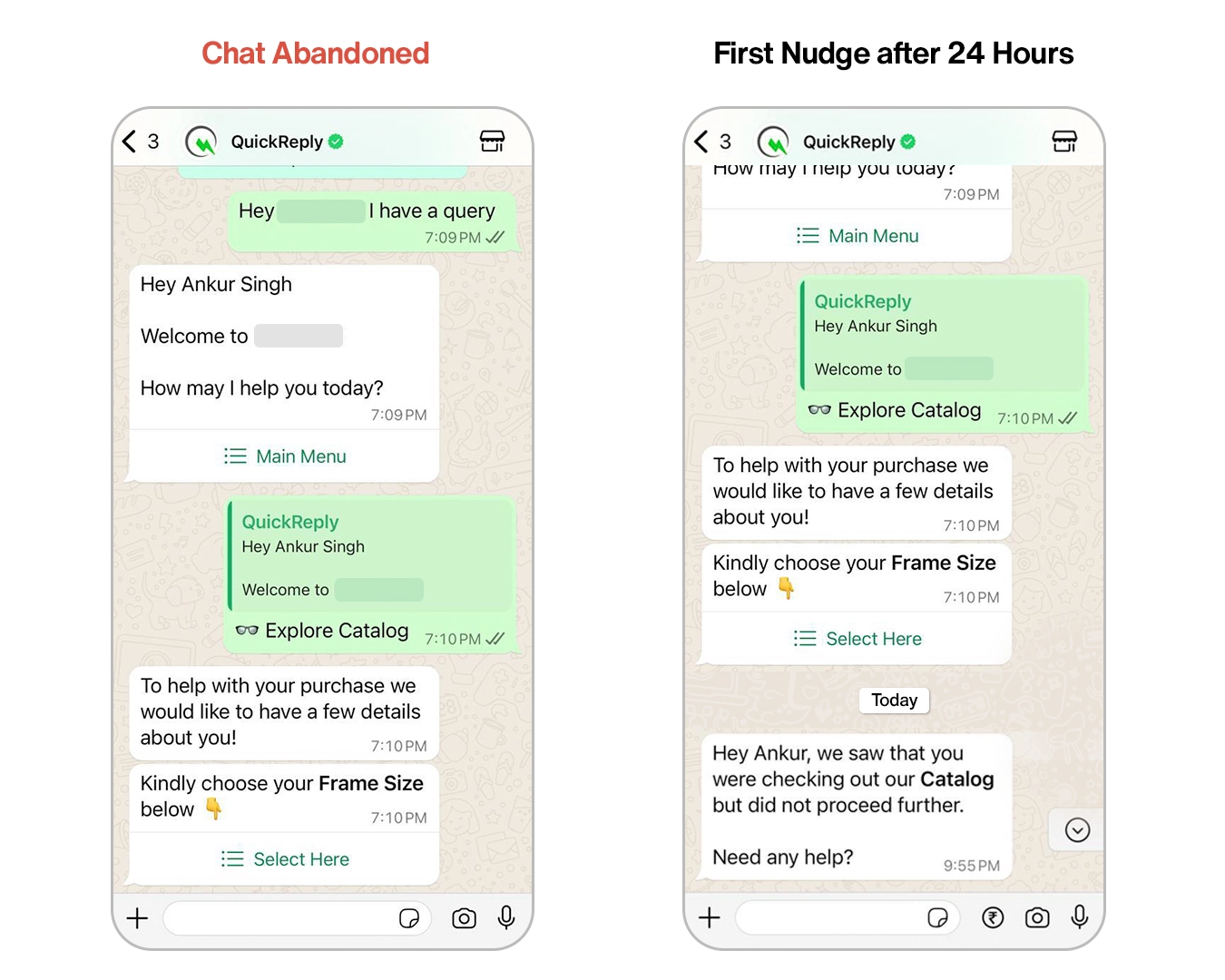
Challenge: Effectively engaging and retaining new customers.
Solution: An automated nurture sequence tailored for new customers can significantly enhance their experience. Upon signing up or making their first purchase, customers can be entered into a nurture sequence that introduces them to the brand, highlights key products or services, and provides valuable content or offers. For example, the sequence may start with a welcome message, followed by tips on how to get the most out of their purchase, and then information on complementary products or upcoming sales. This sequence educates customers about the brand and encourages repeat engagement and purchases.
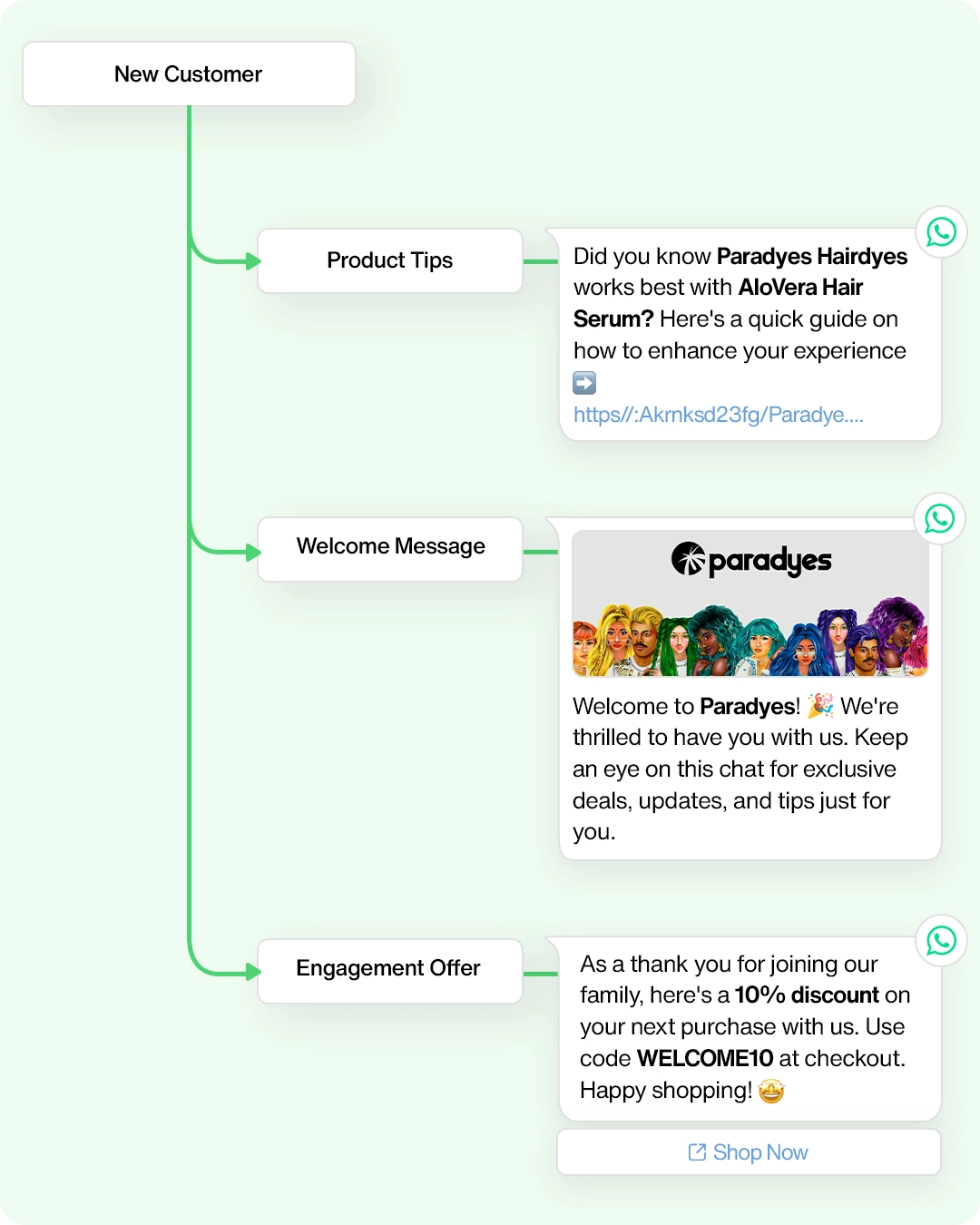
As we've explored, QuickReply Automation's integration and automation capabilities present a wealth of opportunities for D2C brands to enhance their marketing strategies. From recovering abandoned carts to personalizing customer engagement based on detailed insights, these tools empower brands to build deeper connections with their audience. By embracing these technologies, D2C brands can solve existing challenges and innovate their marketing approach, setting new standards for customer experience in the digital age.
Tool and strategies modern teams need to help their companies grow.
Leverage the untapped growth potential of WhatsApp marketing to acquire and retain customers.